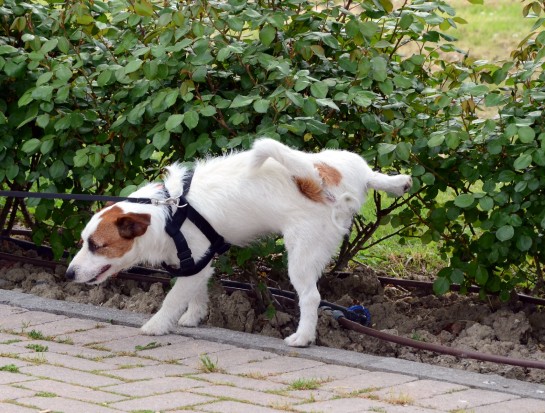

All dog owners know that it is vital to treat their dogs for fleas on a regular basis, in order to keep your dog from scratching and to stop fleas from infesting your home! We tend to think that the more expensive veterinary prescribed flea treatments are the most effective to use on our pets, and in large part, this is generally true. However, if you treat your dog for fleas religiously but you are still seeing fleas on the coat, or your dog is scratching a lot, you may wonder how effective your flea treatment products actually are, and if products will lose their effectiveness over time.
If your flea product doesn’t seem to be working as well as it should there are a multitude of potential reasons behind it, as well as many ways to deal with it. Read on to learn more!
There are a great many reasons why your dog might appear to have fleas after treatment, and not all of them are related to an inherent failure in the product that you are using.
Some of the most common problems that are often confused with a failure of the flea treatment product itself include:
This is a common problem if a dog with a fairly heavy flea infestation has just been treated, and often leads people to believe that the product has failed. However, when your dog has just been treated, the sick and dying fleas present will cause more of a commotion than before, which can make them more visible and bother your dog for a couple of days before they all die off. This situation usually resolves itself within a couple of days.
Depending on the product that you use to treat your dog with, it may only be capable of killing adult fleas, and not their already laid eggs. This means that after treatment, the eggs already present within the coat will hatch and come to maturity, starting the flea cycle all over again! In order to counteract this problem, pick a flea treatment that kills both mature fleas and also their eggs and larvae.
Sometimes, treating your dog directly for the fleas that they have on their body is simply not enough, if your home is already harbouring a lot of fleas. Soft furnishings and carpets in particular make for good homes to fleas, and if your home is infested, your flea-treated dog may become re-infected when the fleas within the home make the leap back onto your dog’s body!
In order to prevent this, treat your home itself for fleas a couple of times a year, as well as treating your dog.
If you flea-treat your dog regularly and cannot find any sign of fleas on your dog but your dog is still scratching, there might be another problem in play that is not related to fleas at all! Allergies, skin sensitivities and various other conditions such as dermatitis can all lead to sore spots, itchiness and general discomfort of the skin, which may cause your dog to scratch themselves a lot, giving the impression that they have fleas.
If you have ruled out all of the potential causes of flea infestation above and are sure that they do not apply to your dog, you will then have to wonder about the possibility that the product that you are using is no longer working. First of all consider the product that you are using on your dog; if you are using a cheap supermarket-bought product, then this is highly likely to be the problem! These products are just simply not effective at getting rid of fleas properly, and if you change over to a better quality product recommended by your vet, you will almost certainly see a difference.
If you are already using a good quality flea product that your vet recommends and it does not appear to be working properly, talk to your vet in the first instance. They can check to ensure that you are applying the product properly, in the right place and at the required intervals, and offer some insights into why things might be going wrong.
However, as parasitic animals, fleas are very adaptive to survive through our various attempts to eradicate them, and can, over time, build up a resistance to the active ingredient in any given product, meaning that it may lose its effectiveness. The same product may still be perfectly suitable to use on other dogs and possibly, in other localities where the fleas have not developed a tolerance to it, but if it simply appears to stop working for your own dog, simply swap over to a different product with a different active ingredient.
 Indications That Your Dog Or Puppy Needs To Go To The Toilet
Indications That
Indications That Your Dog Or Puppy Needs To Go To The Toilet
Indications That
 Are Some Breeds Of Dog More Susceptible To Cancer Than Others?
Are Some Breeds O
Are Some Breeds Of Dog More Susceptible To Cancer Than Others?
Are Some Breeds O
 Cordon Bleu Finches
Cordon Bleu Finch
Cordon Bleu Finches
Cordon Bleu Finch
 A Hutch Is Not Enough - Why Rabbits Should Not Be Considered As An Easy Pet
A Hutch Is Not En
A Hutch Is Not Enough - Why Rabbits Should Not Be Considered As An Easy Pet
A Hutch Is Not En
 German Shepherd Average Longevity And Hereditary Health
German Shepherd A
German Shepherd Average Longevity And Hereditary Health
German Shepherd A
Copyright © 2005-2016 Pet Information All Rights Reserved
Contact us: www162date@outlook.com